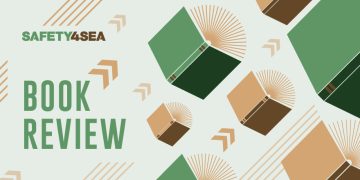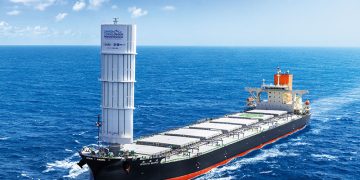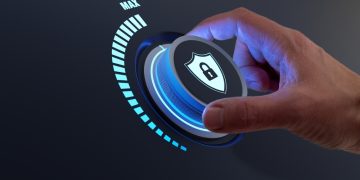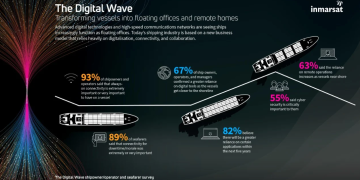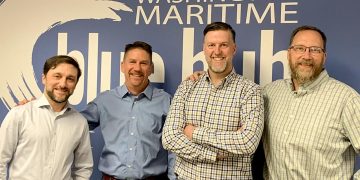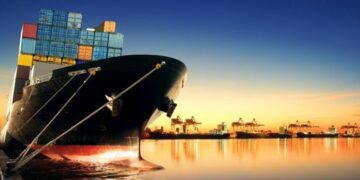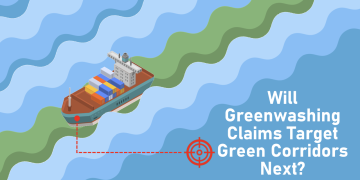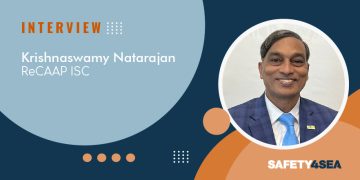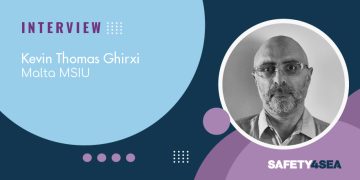Global Environmental Activism Inertia Has Taken Driver’s Seat on Maritime Policy.
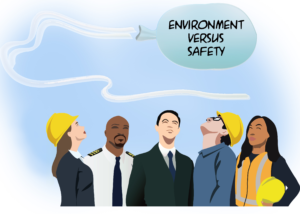 Compared to other global industries, shipping is relatively insulated from the general public at large—surprisingly so given its global reach and indispensability. It is not a world where people understand that without shipping, “half the world would starve, while the other half would freeze.”
Compared to other global industries, shipping is relatively insulated from the general public at large—surprisingly so given its global reach and indispensability. It is not a world where people understand that without shipping, “half the world would starve, while the other half would freeze.”
When people go shopping to find those fresh bananas or oranges in their local grocery store from Marseille to Shanghai to Dubai to New York City, they don’t consider the logistics required to deliver those fruits in a safe and environmentally friendly way with the most important link in that chain being shipping.
Truths versus Fiction
As the general public do not understand the role of shipping plays in their daily lives, what they do see of the maritime industry is generally skewed. The global media industry only pays attention to the maritime industry when we’ve spilled oil into a pristine environment, or an incident that may affect the safety of passengers on a large passenger ship or ferry has occurred. It is what we call, “CNN time,” which, for our industry, does not normally inspire a positive connotation. Safety doesn’t sell news time and newspapers as casualties do.
When the general public express their “outrage” with our industry for what they perceive as safety or environmental transgressions, they do so to such global and well-established and respected news outlets as the New York Times or the Times in London. When the maritime sector responds, we do so to Safety4Sea, Lloyds List, TradeWinds or other maritime news forums.
Nobody knows the maritime industry better than we do, but our ability to articulate ourselves to the general public leaves much to be desired and is a losing battle no matter how gallantly and intelligently we fight it. The problem is further exacerbated by the fact that shipping is the sum of subcultures covering a broad range of businesses, from LNG to general cargo, from container ships to passenger ships, from bulk carriers to tankers and so on. We have industry groups that speak for various sectors of shipping, but not a single, well organized and focused voice for the maritime sector as a whole.
Our ability to speak to the issues that concern the industry, and general public as a whole, to policy makers on safety, security and environmental protection is muted. The International Maritime Organization is our forum. However, powers outside of our control dictate the narrative.
This is particularly relevant to protecting the marine environment. Images of ships spewing black plumes of smoke from stacks, and of our oceans and marine mammals being inundated with plastics, paint a starkly unfair and misunderstood picture of an industry that doesn’t seem to care about our oceans. They are images that are difficult to battle despite their misrepresentation of facts. For example, just 4 nations –the People’s Republic of China, Indonesia, Philippines and Vietnam — represent more than 6 million metric tons per annum, a staggering 68%, of all global plastic waste that makes its way to the marine environment.
However, shipping is not immune to scrutiny as studies show that 400,000 premature deaths can be attributed to lung cancer, cardiovascular disease and 14 million cases of asthma per annum can be traced to pollution by ships. Such studies, and there are many more, have led to maintaining the strict implementation dates of compliance with the 0.5% sulphur cap requirements of Annex VI MARPOL Convention by 1 January 2020. There is too much inertia to change, or slow the course of these changes, no matter how practical they would be.
Note that we haven’t even touched on the tip of the iceberg related to climate change relevant to the maritime industry’s role in greenhouse gas emissions, environmental sustainability, etc. as well as a whole new range and dimension of environmental challenges.
Environmental Inertia
 Hence, the concept of safety for the maritime industry has now found itself down an interesting path that – ironically— has not necessarily been as intended. This is the concept that the industry’s (limited) safety resources and efforts should be focused on our improving our environmental footprint. So “SAFETY FIRST” is now targeted primarily towards environmental policies and procedures.
Hence, the concept of safety for the maritime industry has now found itself down an interesting path that – ironically— has not necessarily been as intended. This is the concept that the industry’s (limited) safety resources and efforts should be focused on our improving our environmental footprint. So “SAFETY FIRST” is now targeted primarily towards environmental policies and procedures.
For example, the costs of installing and training for ballast water treatment systems (BWTSs) in compliance with the International Convention for the Control and Management of Ships’ Ballast Water and Sediments (BWM Convention) and compliance with the 0.5% sulphur content for bunker fuels by 1 January 2020 set forth in Annex VI of the MARPOL Convention has resulted in significant financial strain and burden upon the shipping industry. The limited experiences with new and untried technologies such as BWTSs, SOx exhaust scrubbers, etc. give rise to such questions as to whether such resources could be better spent on tried and trusted safety training efforts, and the recruitment of better trained and motivated seafarers.
Safety and Environmental Protection: A Peaceful Coexistence?
There is a valid argument that the environmentally driven regulations bearing down on the industry has in fact negatively affected safety at sea. As usual, new regulations and requirements are thrown at the seafarers with absolutely no tools offered to cope, and no additional crew. Everyone is expected to just get on with it and lower ranks often don’t have the intellect or training to deal with new “rules”.
Senior officers are faced with ever more stress from having to deal with new regs and more burdensome paperwork which cuts into rest periods, increases fatigue and frequency of accidents.
There is a point where safety is inversely proportional to compliance.
For example, the establishment of emission control areas (ECAs) under M has been the increased risks of groundings, collisions and disabling of ships when changing over engines to run on low-sulphur fuels. This stems from a lack of technical knowledge coupled with a lack of proper training. Sending a few new pages to update the safety management system manual is simply not good enough.
Safety at sea will not improve whilst the industry is only being bombarded by environmental concerns with no proper consideration of the effects of compliance standards on the crew. Training motivated people, who are attracted to a career at sea, is the only way to improve both safety at sea and environmental protection.
Put simply, compliance with environmental regulations has sucked all the oxygen out of the room, leaving little to enhance safety. Unfortunately, we see this challenge in balancing safety and environmental protection continue on, unabated, for years to come.
Challenges for loss prevention
Where does this leave the American Club in the areas of loss prevention for 2019? For more than fifteen years, the American Club’s loss prevention strategy has focused on the development and implementation of products and services relevant to safety, protecting the marine environment and cargo for our Members. A full summary of these initiatives can be found at https://www.american-club.com/page/loss-prevention.
The challenges noted above with the focus on “environmental” safety has unique challenges the Club is addressing in 2019 as follows:
- Training. The Club’s e-Learning tools are designed to be “user friendly” for both seafarers and office personnel regarding safety and environmental protection subjects. Members can track their seafarers’ knowledge and keep up-to-date records of familiarization training in compliance with the STCW Convention, environmental regulations and a company’s safety management system requirements under the ISM Code. There is a full package of training modules for Annexes I through VI of the MARPOL Convention and US EPA’s Vessel General Permit.
- Best practices and guidance. The Club is preparing a compendium guidance document, supplemented with training animations on compliance with the 1 January 2020 0.5% sulphur cap compliance for Annex VI of the MARPOL Convention as well as risks associated with contaminated bunker fuel. This will cover a wide range of topics and provide guidance and recommendation particularly focused towards P&I related-protections, as well as the collection and maintenance of evidence. The guidance is due for release during the summer of 2019.
By William Moore, Dr Eng, Senior Vice President, Global Loss Prevention Director, Shipowners Claims Bureau, Inc., Managers, American Club
The views presented hereabove are only those of the author and not necessarily those of SAFETY4SEA and are for information sharing and discussion purposes only.
About William Moore
Dr. Moore is the Senior Vice President for Loss Prevention at the Shipowners Claims Bureau, Inc., managers of the American Club. In that capacity, he brings 22 years of experience to the development and implementation of the Club’s loss prevention initiatives to assist shipowners in the reduction of maritime risks and incidents. He formerly worked at ABS in New York and Gard Services in Norway. He acquired his doctorate degree at the University of California at Berkeley in Naval Architecture & Offshore Engineering and is also a graduate of Ocean Systems Management at the Massachusetts Institute of Technology. Dr. Moore is also formerly the Chairman of the IMO’s Joint Maritime Safety Committee & Marine Environmental Protection Committee’s working group on the Human Element. He is also a Member of the American Bureau of Shipping.








